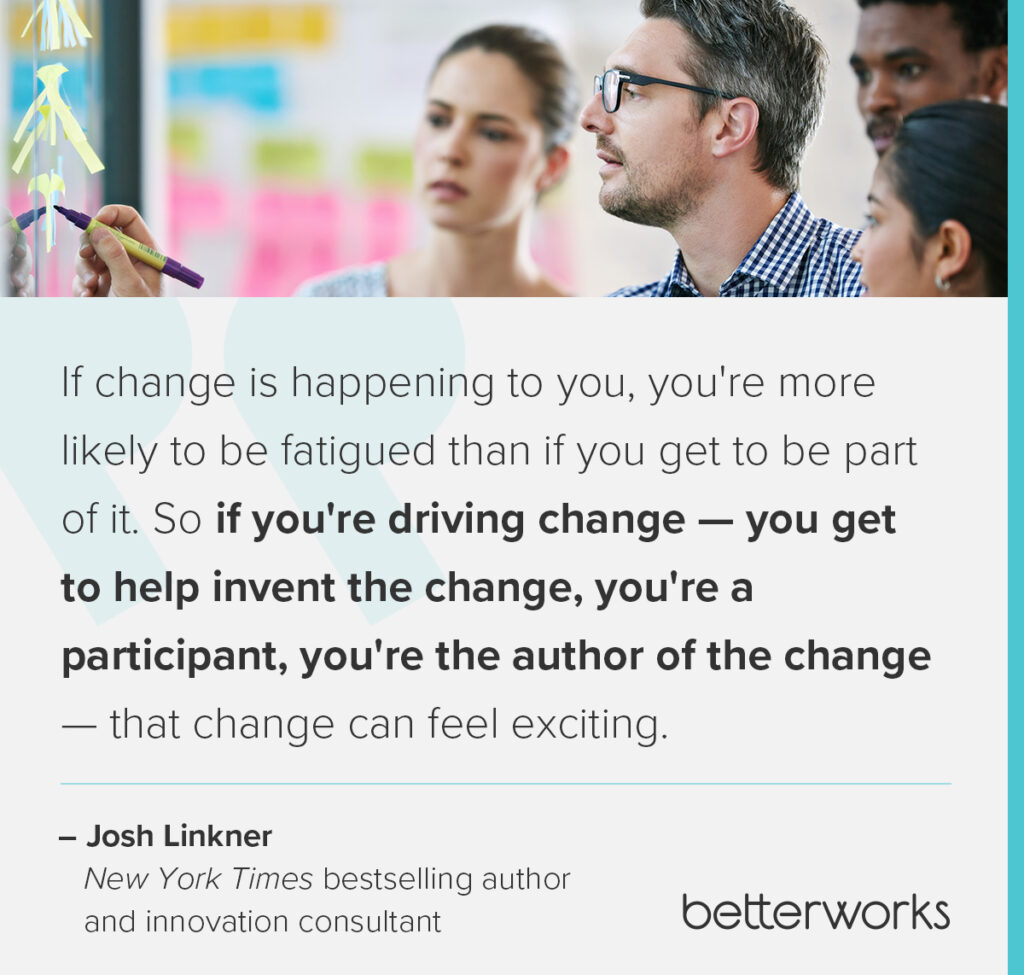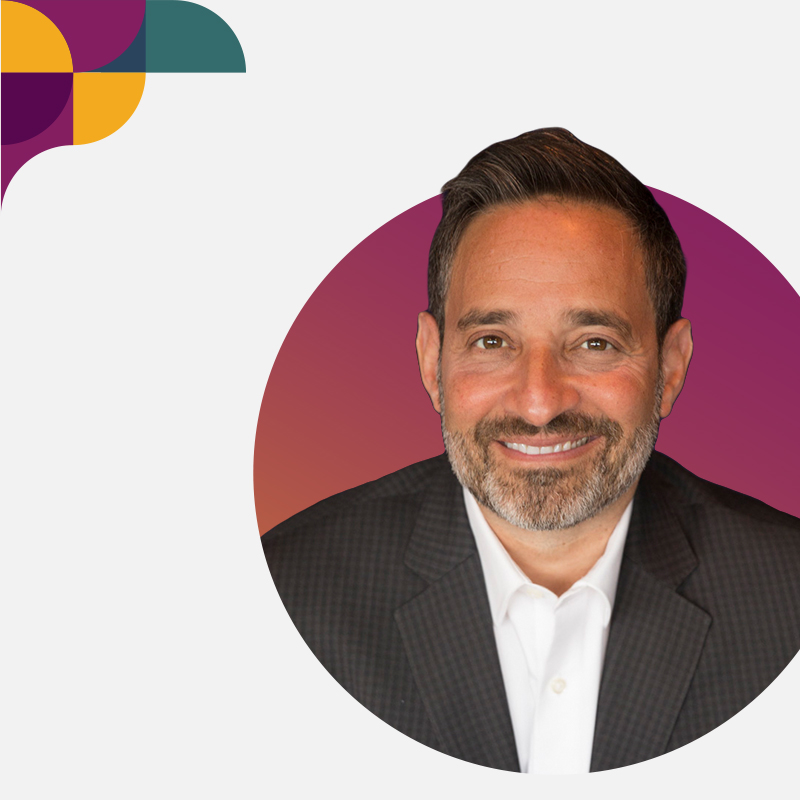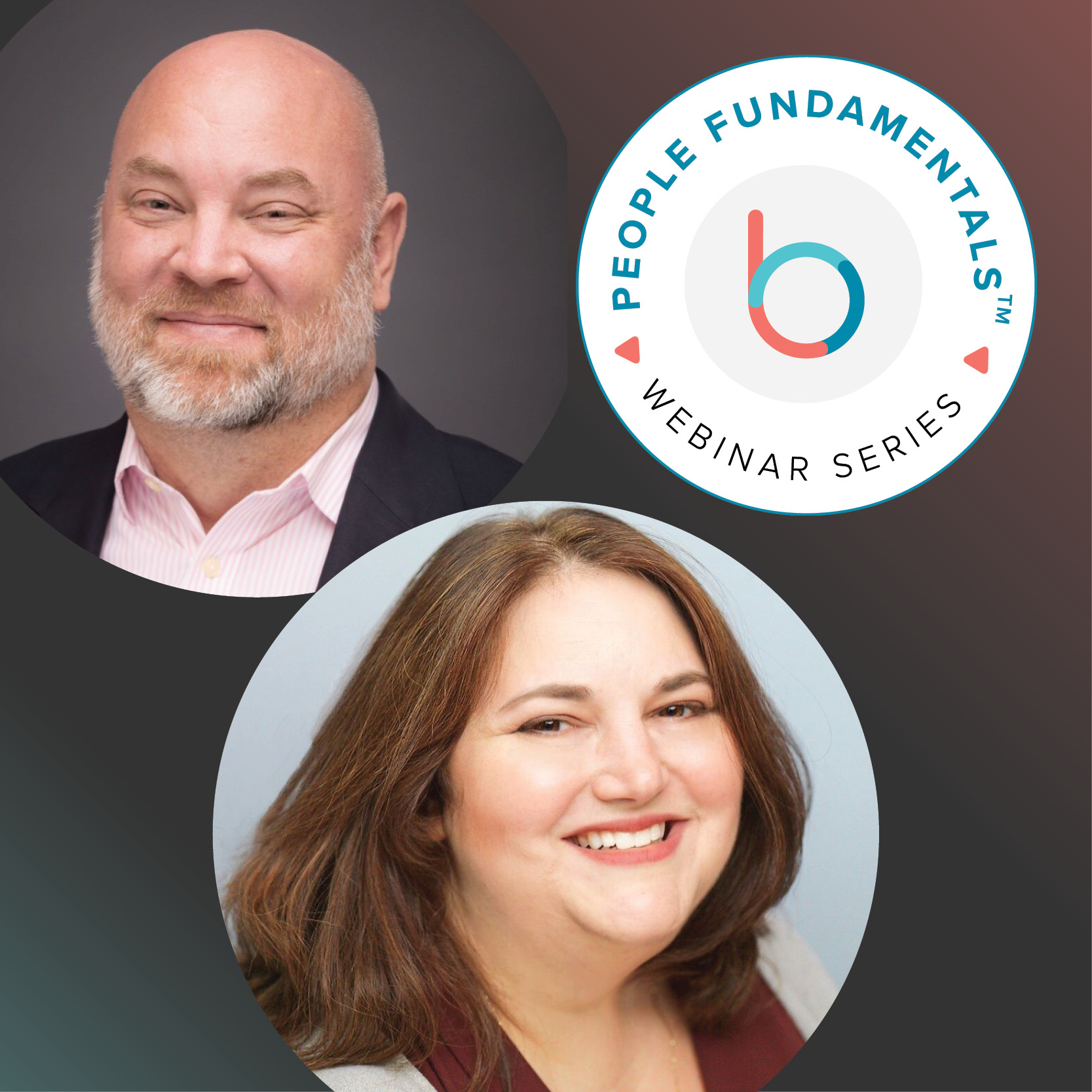You’d be hard-pressed to find a modern leader who didn’t say a culture of innovation was critical to business success. And yet, many of our workplace norms have the effect of actively discouraging the kinds of creativity and risk-taking that drive innovation.
That makes HR leaders critical in any efforts to turn that culture around and open up new possibilities for transformative change. According to serial entrepreneur, author, and venture capital investor Josh Linkner, it starts by questioning our assumptions about “creativity” itself.
“Creativity is a natural resource that lives within all of us, and human beings are hardwired to be creative,” Josh says, who finds his creative outlet as a professional jazz guitarist. He would know — he’s a New York Times best-selling author of four books on creativity and innovation, including “Big Little Breakthroughs.” Josh pioneered a framework for coaxing out the creativity he believes every person is inherently born with. He’ll share that framework during his keynote presentation at EmpowerHR Americas.
We spoke with Josh ahead of the event to find out how to unlock creativity at work, allow people to help direct your change journey, and adopt the right rituals and rewards to drive better performance and engagement.
Unlock creativity through experimentation
The biggest ideas don’t always drive the biggest impact — nor do those big ideas come easily. In most cases, small changes lead to larger shifts over time, building toward big changes. People tend to freeze up when asked to jump straight to big ideas, Josh says — which is why his framework relies on big little breakthroughs. “Can you think of five little things that we could do to improve a situation?” he says. “Everybody can answer that question.”
Give employees permission and safety to explore new ideas through small, low-risk experiments. “Over time you actually build skill, and unlock the bigger breakthroughs that you see,” Josh says. Small experiments help employees increase their creative output — a result that “not only benefits the company, but it benefits you as a human being,” Josh says.
Fostering creativity can drive business value and resolve some of the HR challenges you’re facing in terms of low employee engagement, morale, and productivity. “There are a few things in life as intrinsically rewarding as the expression of one’s creativity,” Josh says, and giving employees permission to do that can transform your people strategy.
Invite people to participate in change
Change is often overwhelming, but inviting employees to embrace autonomy and help guide changes through small experiments can greatly impact how they handle them.
A sense of ownership over change helps people feel more in control and gets them more excited for the endless possibilities a small shift can introduce. “If change is happening to you, you’re more likely to be fatigued than if you get to be part of it,” Josh says. “So if you’re driving change — you get to help invent the change, you’re a participant, you’re the author of the change — that change can feel exciting.”
Consider opening a “test kitchen,” Josh says, where employees can, “in a safe and organized manner, tinker, and explore and try new things.” Running little experiments regularly allows you to safely explore ideas and test the ones that show the most promise before rolling out any changes on a large scale.

Enable creativity through rituals and rewards
Taking a chance on a new idea can be intimidating, especially if employees don’t feel truly empowered to take risks without facing negative consequences. “The biggest blocker of creative output is not natural talent: it’s fear,” Josh says. “And so fear and creativity cannot coexist.”
You can enable creativity within the fabric of your organization by implementing healthy rituals and rewards, Josh says. “If you create an environment, and the conditions are safe for people to share ideas without retribution, creativity actually starts to happen naturally,” he says.
Rituals build creativity into your core culture and processes. Josh points to one company that elevated creativity by implementing a “Failure of the Year” award. The company publicly celebrates the team or individual that had a great idea that didn’t work out, he says. “And instead of getting fired, they get a standing ovation.” A ritual like this sends a strong message that taking responsible risks isn’t just encouraged: it’s part of the job.
Layering rewards on top of that through offering bonuses or other incentives demonstrates the value an employer places on driving creativity. “Get the right rituals, get the right rewards, and you’ll remove fear and create the right conditions,” Josh says. “Creativity will blossom naturally because that’s who we are as human beings.”
Want to learn more? Register for EmpowerHR Americas to hear more from Josh on unleashing creativity and innovation at work.
Hear Josh at EmpowerHR Americas



